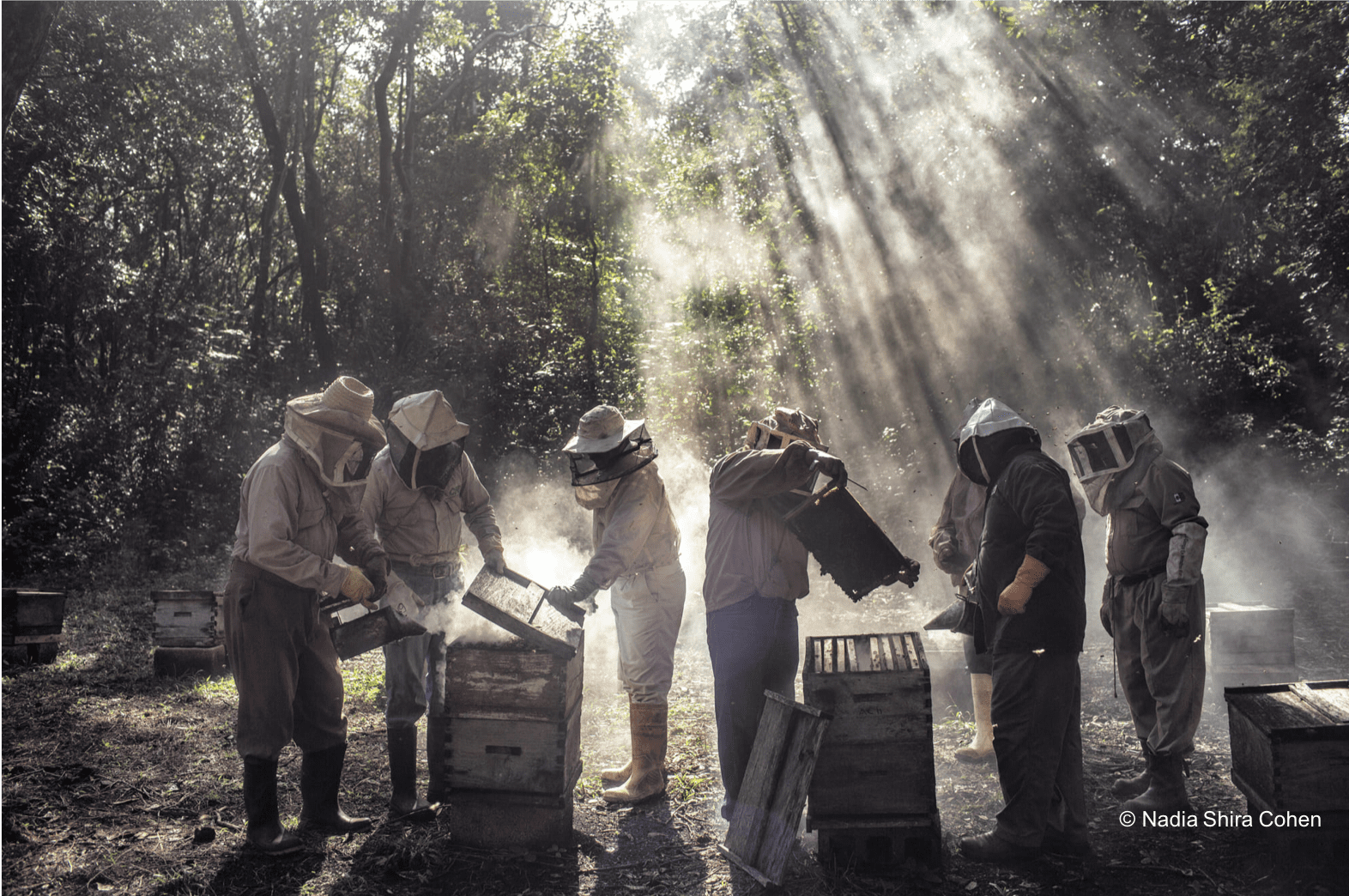Yves Rocher Foundation – Visa pour l’Image 2019 award winner Nadia is an American photojournalist based in Rome. Her work examining issues surrounding human rights, environmental conflicts and urban violence have won her a number of prizes and awards.
At the heart of the conflict between the Mayan and Mennonite communities
Mayan bee-keepers believe that the native meliponinae bees were a gift from the god Ah Muzen Cab and a link to the spirit world. For centuries, they’ve provided enough honey to make the Yucatan peninsula one of the world’s largest producers. But in the past few years, the hives have been disappearing and the dwindling supply of honey has been contaminated by pesticides.
One farmer reported his harvest dropping from 600 kilos of honey to 60 in just a few years. – Nadia
This battle between Mayan beekeepers and Mennonite farmers has now reached Mexico’s highest court.
Over 15,000 communities impacted
In her report, Nadia investigates the dispute between some 15,000 indigenous Mayan communities and the agribusiness being run by the Mennonite farmers in the Yucatan, showing two starkly different communities clinging to their traditional ways of life and livelihoods, caught up in the powerful economic forces of the agricultural industry.
In the late 2000s, the Mexican government began offering subsidies to farmers willing to grow soybeans. In 2011, it issued the first permits for Monsanto to sell GMO soybeans in the region. But the farmers who seized that opportunity were overwhelmingly from the Mennonite communities who could afford the amount of land and machinery needed.
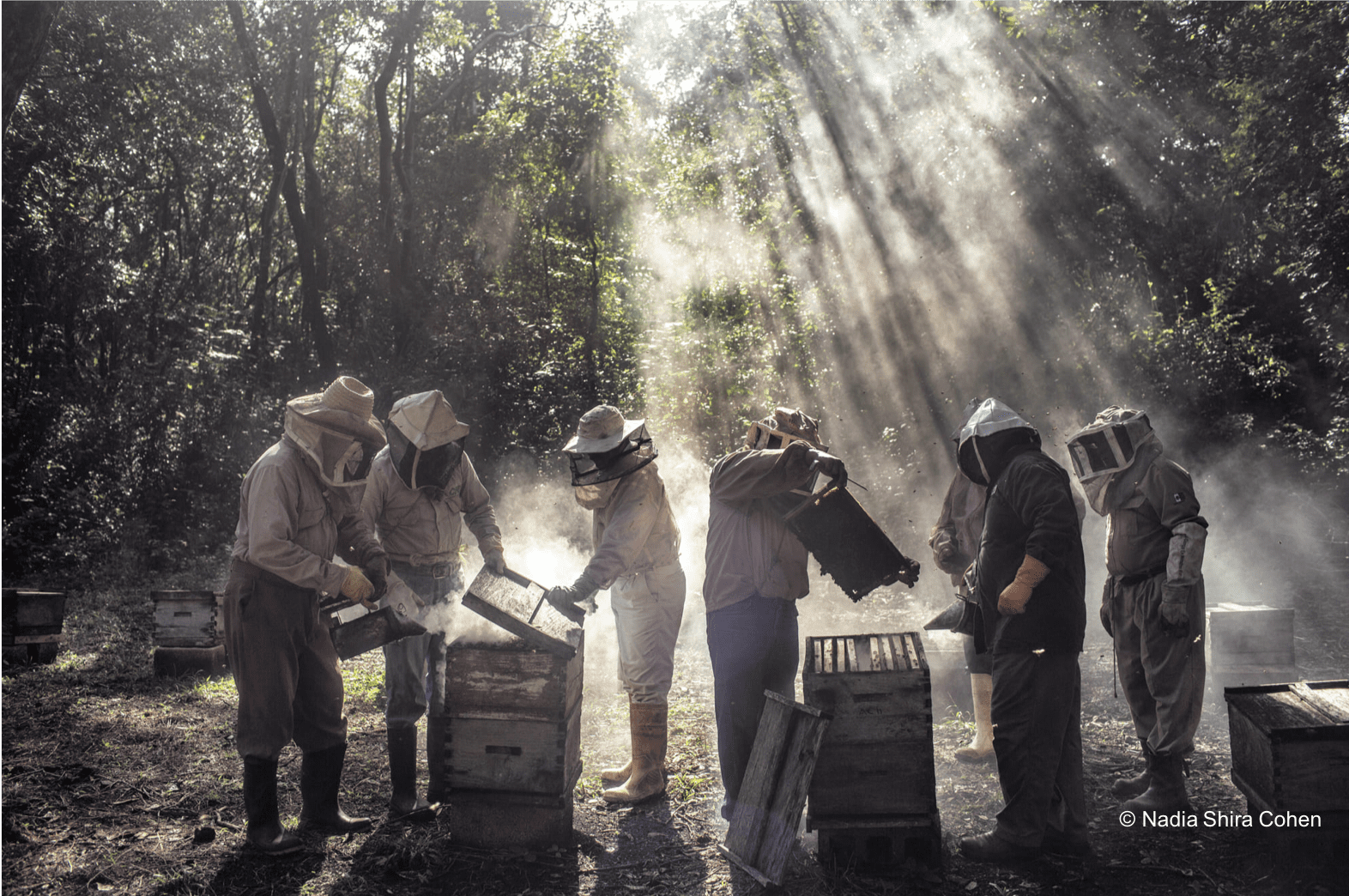

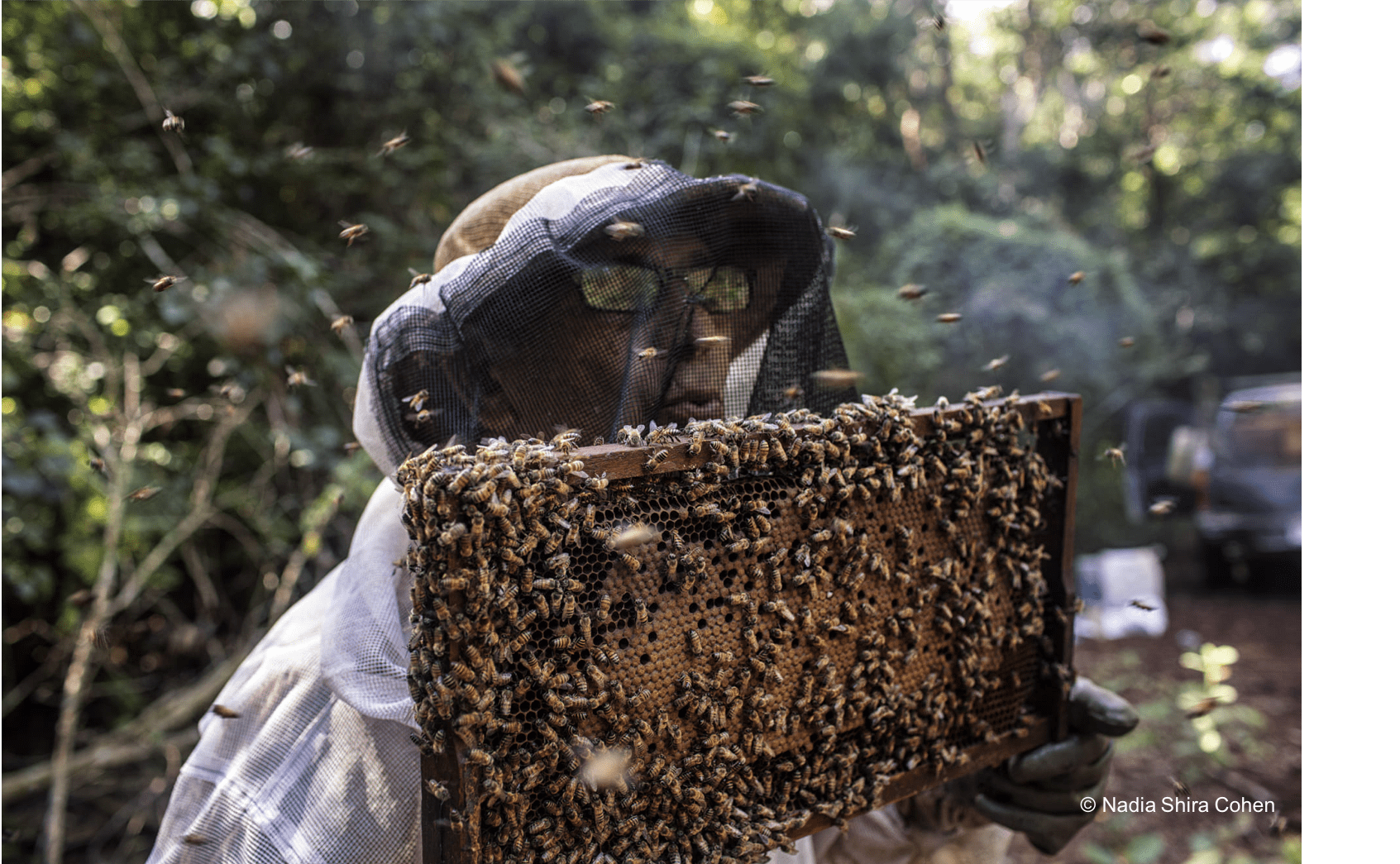
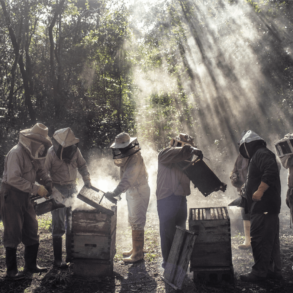

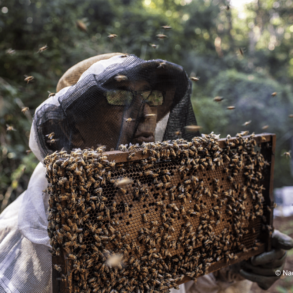
Over 85% of soybean crops grown by Mennonites
Mennonites first arrived in Mexico in the 1970s and gravitated toward the Yucatan Peninsula, where water was plentiful. Today, with a population near 60,000, they control much of the farmland. Mennonites grow an estimated 85 to 100 percent of the soybean crops, according to Naayeli Ramirez, an indigenous rights lawyer.
The same year that the Mexican government issued Monsanto permits, the European Union ordered that honey with traces of transgenic pollen would have to be labelled as non-organic. Today, the honey produced by Mayan farmers can no longer be called organic because of the infiltration of pesticides in the region. These beekeepers also blame GMO crops and pesticide sprays for a massive decline in honey production.
We can prove they have pesticides in their body, in the water, in the land, and the effects are just around the corner, says Ramirez.
In 2015, the Mexican Supreme Court agreed that the Mayan communities had not been properly consulted before GMO soybeans were planted, and the agricultural ministry suspended soybeans in three states. Activists say this is not being observed: pesticides, which were introduced in 2010, are still being sprayed and water is being contaminated, killing animals and affecting human health.
This is only a show,” says Ramirez. “Impunity in environmental law in Mexico is just the rule. No one is actually applying the law.
The visually rich stories of indigenous groups in Latin America as well as those of the Mennonites are not new. Both groups have been depicted by the media for some time in varying ways. What is unique about this story is its perfect storm of money, religion, and politics. Both the Mayans and the Mennonites strive to keep their traditional ways of life and livelihoods alive and the beliefs that fuel them. One is used by big business at a cost to the other – yet they are entangled in a grey area.
Are you working on a photojournalism project with a message to share, with the emphasis on the environment and the relationship between humankind and nature?
If so, apply to the Yves Rocher Foundation & Visa pour l’Image Photo Award to be in with a chance of winning a grant, an exhibition and support from artists committed to a cause.
Learn more about Nadia Shira Cohen’s work on her website:
https://nadiashiracohen.com/

